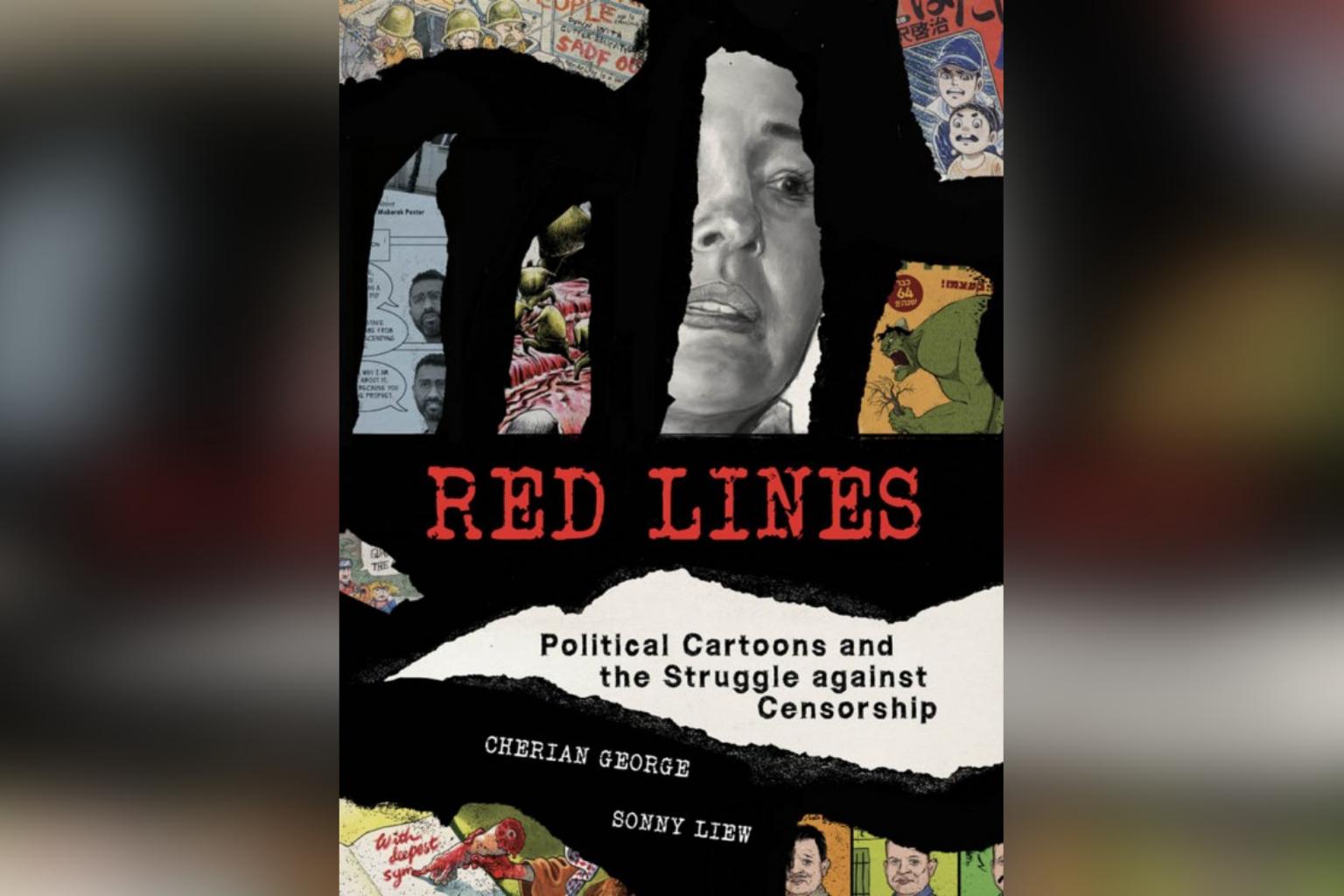New book on political cartoons banned in Singapore due to objectionable content that denigrates religions
Sign up now: Get ST's newsletters delivered to your inbox

The book Red Lines: Political Cartoons And The Struggle Against Censorship has been classified as objectionable under the Undesirable Publications Act.
PHOTO: MITPRESS.MIT.EDU
Follow topic:
SINGAPORE - A new book on political cartoons will not be allowed to be sold or distributed here as the authorities have assessed that it contains objectionable content that denigrates religions.
The Infocomm Media Development Authority (IMDA) said on Monday (Nov 1) that it has classified the book Red Lines: Political Cartoons And The Struggle Against Censorship to be objectionable under the Undesirable Publications Act.
"This is because the publication contains offensive images that denigrate religions, including reproductions of Charlie Hebdo's cartoons of Prophet Muhammad, which led to protests and violence overseas," said IMDA.
The authority added that the book, which was published in August, also contained other denigratory references pertaining to Hinduism and Christianity.
The book is by Dr Cherian George, a media studies lecturer at Hong Kong Baptist University, and graphic novelist Sonny Liew, and has already been distributed in other countries like the United States.
The book examines political cartoons from all over the world and explains the various motivations and methods of cartoon censorship.
Together with the Ministry for Culture, Community and Youth and the Ministry of Home Affairs, IMDA identified 29 images that are objectionable.
"Members of the public are advised not to share the offensive images which denigrate religions and religious figures," said IMDA.
The publication may be distributed in Singapore if the offensive images are removed.
The books distributor, Alkem Company, had approached IMDA to review the content, and the authority said it has engaged the distributor on its decision.
IMDA generally takes about one to two months to review publications.
In a Facebook post, Mr Liew said the book's local distributor had flagged potential issues in August. He and Dr George had agreed that they should work with IMDA to see what images might be problematic and how these could be redacted for a version of the book for Singapore.
"We have been waiting for feedback from the IMDA since, and after the information received today, will continue to see what adjustments can be made," said Mr Liew on Monday.
The two authors had no direct communication with IMDA but their distributor had been, with their approval, discussing how best to make redactions to the book, said Dr George in a post on a website about the book on Monday.
"As authors, we were cooperating fully, including reviewing various technical means for redaction. We understood from our distributor that IMDA appreciated the academic purpose of the book and recognised that the book republishes examples of controversial cartoons to illuminate ongoing debates and not to offend," he said.
The offensive Charlie Hebdo cartoons first appeared in 2006 and have been widely labelled as irresponsible, reckless and racist, said IMDA, adding that most major publications had refused to reproduce the cartoons as they were deemed incendiary.
The cartoons have sparked protests around the world, including Indonesia, the Middle East and the United Kingdom. They have also resulted in violence, including attacks on the original publisher's premises and staff, and 12 people were killed.
Last year, a French teacher was killed by three teenagers after he showed his students caricatures of Prophet Muhammad during a lesson.
Under the Undesirable Publications Act, anyone convicted of importing, selling, distributing, making or reproducing an objectionable publication is liable to a fine of up to $5,000 and/or imprisonment for a term of up to 12 months.
IMDA said that in the last five years, it has classified six other publications to be objectionable for denigrating various religious communities.

